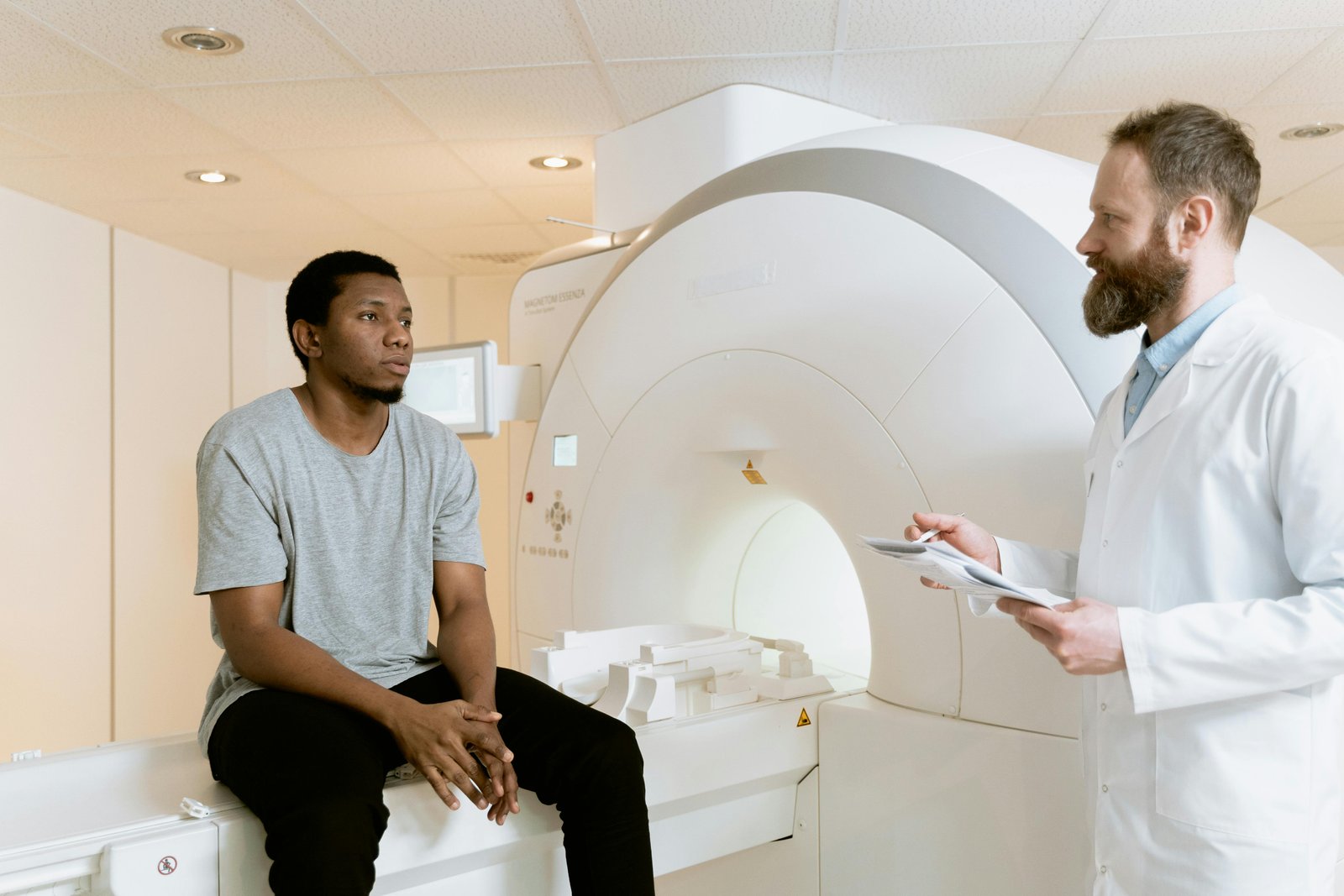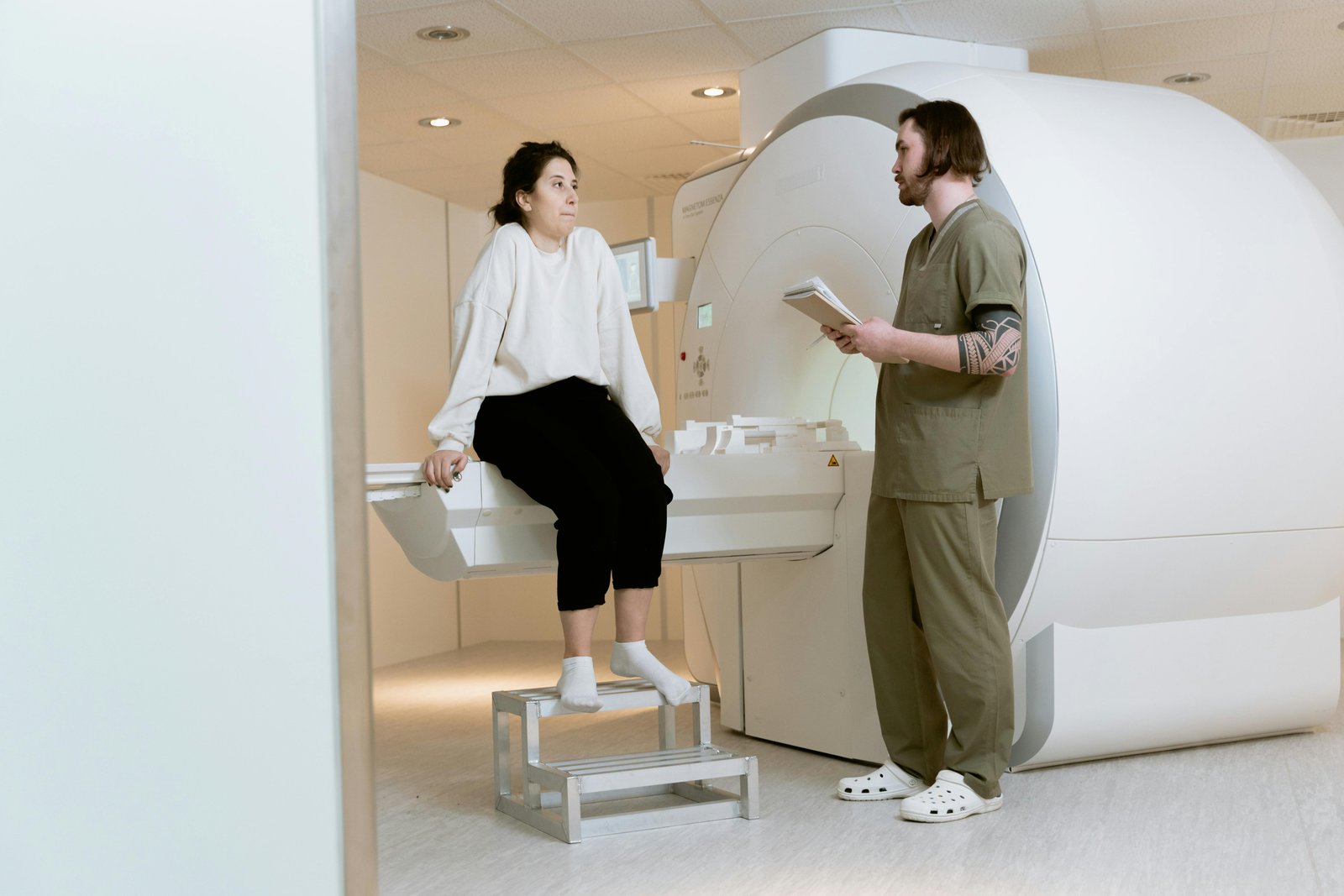TL;DR:
- Medical Consultation: Discussion with a healthcare professional for advice, diagnosis, or treatment.
- Reasons for Consultations: Check-ups, chronic condition monitoring, new symptoms, specialist opinions, preventative care.
- Types of Consultations:
- General Medical Advice: Everyday health queries.
- Diagnostic Consultations: Identification/management of specific conditions.
- Specialty Consultations: Expert advice on complex issues.
- Direct Primary Care Benefits: Affordable, personalized, easy access without insurance hassles.
- Preparation Tips: List concerns, know medical history, set goals, prepare questions and bring support and note-taking gear.
- Virtual Consultations: Convenient access to care, enhanced continuity, suits busy lifestyles.
- Misconceptions: Accurate diagnosis may require multiple visits/tests for comprehensive insight.
Have you ever thought medical consultations were just a quick chat with a doctor? Think again. It’s more than that—it’s your gateway to better health. Whether you’re visiting in person or hopping on a video call, these consultations help diagnose issues, manage chronic conditions, and set you on a healthier path. In this blog, we’ll break down everything you need to know about medical consultations, from what they are to why they’re so essential for your well-being. Stick around; your health will thank you!
Understanding Medical Consultations
A medical consultation involves talking with a healthcare professional about your health concerns. During these chats, you get advice, diagnosis, or treatment suggestions. They can happen in person, at a clinic, or online through telemedicine. This digital option is perfect for busy days or when travel is tough.
People seek medical consultations for different reasons, such as:
- Feeling unwell and needing a check-up
- Regular monitoring for chronic conditions
- Seeking a specialist’s opinion on specific issues
- New symptoms causing concern
- Preventative care, like vaccines or screenings
Different types of consultations serve various needs. General consultations handle everyday health issues and new symptoms and cover routine care. Diagnostic consultations dive deep into specific issues. If your general doctor needs another specialist’s insight, they may refer you to someone with advanced expertise.
Consultations are vital for staying healthy. They help detect issues early, manage existing conditions, inform us about our health, and guide us toward better well-being.
Types of Medical Consultations

Various medical consultations fit different health needs. Whether for general advice or detailed specialist input, there’s an option available. Let’s explore the main types you might encounter.
General Medical Advice
General medical advice is key for health questions that don’t feel big enough for a doctor’s visit. These consultations handle everyday queries. Thanks to telemedicine, you can access this advice from home. Picture having a doctor ready for quick checks or health tips—convenient, right?
Diagnostic Consultations
Diagnostic consultations are essential when you need to explore a health issue more. They focus on identifying or managing conditions. Specialists provide thorough assessments, acting like health detectives. They help solve health mysteries and guide the next steps.
Specialty Consultations
Specialty consultations are for complex health issues that need expert advice. These professionals have specialized training in specific medicine areas. Whether a heart doctor treating cardiac concerns or a psychiatrist treating mental health issues, they provide tailored advice and treatment. They are the go-to options when health needs specialized attention.
| Consultation Type | Purpose |
|————————–|————————————————-|
| General Medical Advice | Everyday health queries via telemedicine |
| Diagnostic Consultations | Diagnosis or management of specific conditions |
| Specialty Consultations | Expert advice on complex health issues |
The Benefits of Direct Primary Care in Medical Consultations
Direct primary care (DPC) brings a fresh approach to healthcare by eliminating insurance companies, making it affordable and effective. It functions through a subscription service, offering unlimited access to a healthcare provider for a regular fee. It’s about personalized care, giving you more time and attention. Imagine straightforward care without insurance hassles or surprise bills.
Here are key advantages of direct primary care:
- Affordable Pricing: Regular subscription fees with no hidden costs
- Personalized Attention: More time with your doctor for tailored care
- Easy Access: Direct communication via phone, email, or telemedicine
- No Insurance Hassles: No dealing with insurance claims or approvals
- Proactive Health Management: Focus on preventive care and chronic condition management
Direct primary care enhances patient-provider communication. With fewer patients, doctors can focus more on individuals. This means quicker responses and more thorough follow-ups. It’s like having a doctor who’s always got your back, ensuring quality care.
How to Prepare for a Medical Consultation

Preparing for a medical consultation ensures you get the most from your time. It ensures your questions are answered within those 15 minutes. Here’s how to get ready:
- List Your Concerns: Note symptoms or health worries.
- Know Your History: Bring medical history or recent test results.
- Set Clear Goals: Determine what you want to achieve.
- Prepare Questions: List questions for your doctor.
- Bring Support: Take a friend or family member if needed.
- Note-taking Gear: Bring something to record important points.
During the visit, the doctor will ask about your reason for the visit and your health history. Sharing details helps build a clear health picture. Afterward, the doctor might suggest tests, offer treatment plans, or give lifestyle advice. Ask questions if you are unclear or need more information. It’s a team effort for your best health path.
Communication is key. Be open about your feelings and concerns. If confused, ask for clarification. Doctors enjoy proactive patients. Remember, it’s your health journey, and you’re in charge!
Virtual Medical Consultations: The Future of Healthcare
Virtual consultations revolutionize healthcare by making it accessible from home. Patients connect with providers online, saving time and reducing travel. Telemedicine’s rise fits busy lives well. Who wouldn’t prefer chatting with their doctor from their cozy couch?
Accessibility and Convenience
One major perk of virtual consultations is easy healthcare access. From simple questions to follow-ups, you can handle it all from home without long commutes. This is especially beneficial for remote or mobility-challenged individuals, like having a doctor on speed dial, ready to help.
Continuity of Care
Virtual consultations keep patient-provider communication open. Regular follow-ups are simple and help you stay informed about health plans. Early issue detection is possible and can prevent bigger problems. It’s like having a health buddy looking out for your well-being.
| Virtual Consultation Type | Benefits |
|—————————–|————————————–|
| Telemedicine Consultations | Accessible care from home |
| Online Medical Consultations| Enhances continuity of care |
Common Misconceptions About Medical Consultations

Many assume they’ll get an immediate diagnosis and treatment during consultations. However, understanding your health might need more than one visit. Doctors might require tests like bloodwork or imaging for a comprehensive view. Each result is like a puzzle piece, clarifying the situation.
Doctors collect symptoms and medical history during consultations, acting like health stories. Further tests might be recommended to eliminate guesswork and offer detailed health insights. Once information is complete, doctors can create a precise treatment plan. This careful process ensures accurate care, just like consulting lawyers or tax advisors. It’s about getting advice tailored to your unique needs.
Final Words
Medical consultations offer so much more than just a diagnosis or treatment plan. We dived into the core of what they are and explored the diverse types available. Direct Primary Care brings private and affordable options to the mix, enhancing the quality of patient-provider communication. Prepping for your consultation boosts confidence and ensures you get the most out of your time. Embracing virtual consultations connects us with care right from our living rooms! With misconceptions cleared up, medical consultations become less daunting and more about empowering your health journey.
FAQ
Medical consultation example
A medical consultation example includes a typical visit where a patient discusses symptoms with a doctor, undergoes a physical exam, and receives a diagnosis or treatment plan.
Reason for medical consultation
The reason for a medical consultation can vary but often includes discussing symptoms, getting a diagnosis, receiving treatment recommendations, or seeking medical advice for ongoing health concerns.
Medical consultation guidelines
Medical consultation guidelines advise patients to prepare questions, bring a medical history, and be ready to discuss symptoms and any current medications with their healthcare provider.
Patient consultation
Patient consultation involves a one-on-one meeting between a patient and a healthcare provider to discuss health issues, obtain a diagnosis, and receive treatment recommendations.
Consultation in a hospital meaning
Consultation in a hospital refers to a meeting between a patient and a healthcare specialist to address specific health concerns and develop a treatment plan, either as an inpatient or outpatient.
Patient consultation questions
Patient consultation questions might include asking about symptoms, treatment options, potential side effects, and the expected prognosis or outcomes of proposed treatments.
Medical consultation models
Medical consultation models can include in-person visits, telemedicine, or multidisciplinary team consultations, in which multiple specialists collaborate on a patient’s care.
Medical consultation report example
A medical consultation report example might document a patient’s symptoms, physical exam findings, diagnosis, treatment plan, and follow-up instructions provided by the healthcare provider.
What is the meaning of medical consultation?
The meaning of a medical consultation is a scheduled meeting where a patient discusses health concerns with a healthcare provider to receive advice, diagnosis, or treatment.
What is considered a medical consultation?
A medical consultation is considered any formal meeting between a healthcare provider and a patient to discuss health issues, perform exams, and develop a treatment plan.
What happens during a medical consultation?
During a medical consultation, a patient discusses symptoms, undergoes a physical exam, possibly has diagnostic tests, and receives a diagnosis and treatment recommendations.
What is the purpose of a consultation?
The purpose of a medical consultation is to address health concerns, obtain a diagnosis, develop a treatment plan, and receive guidance on managing medical conditions.

